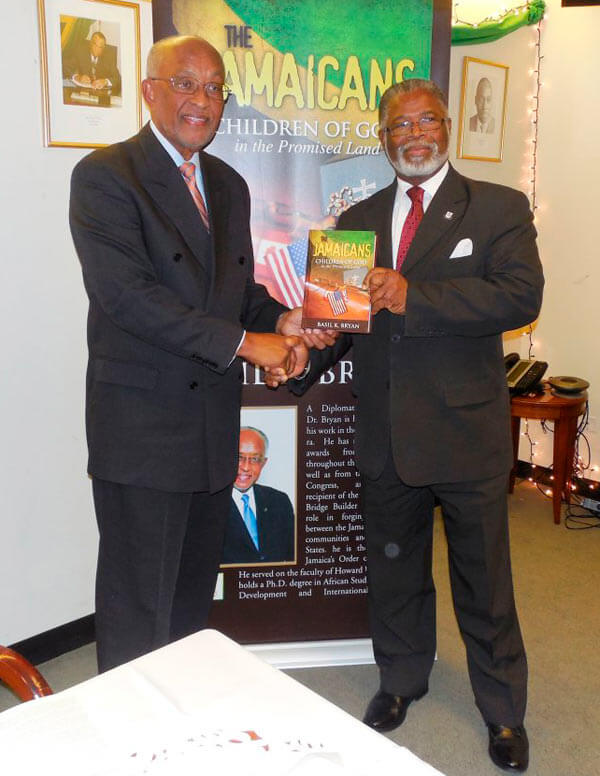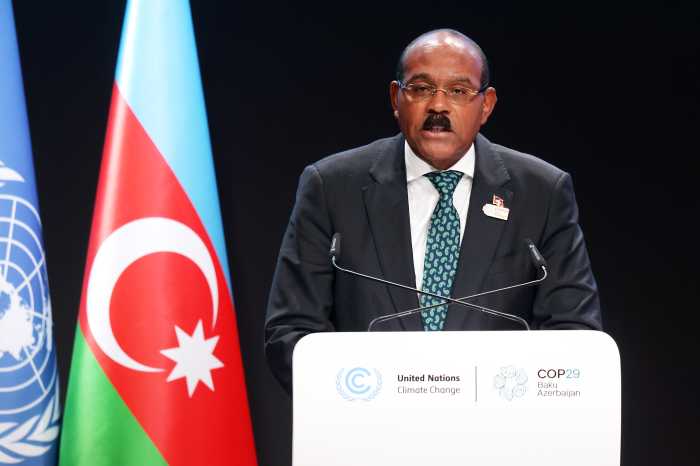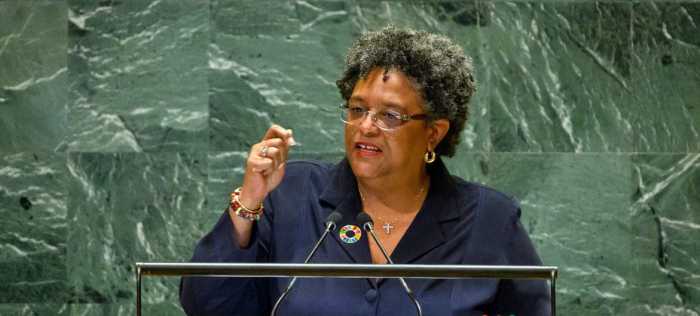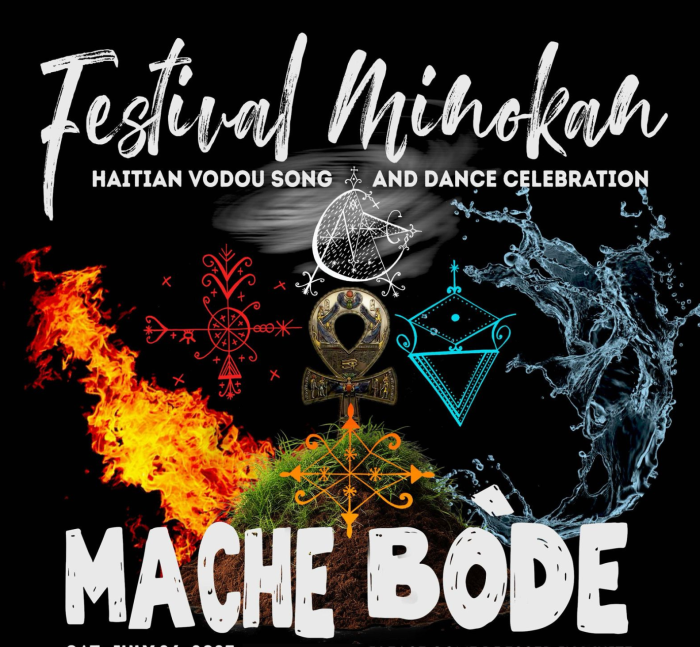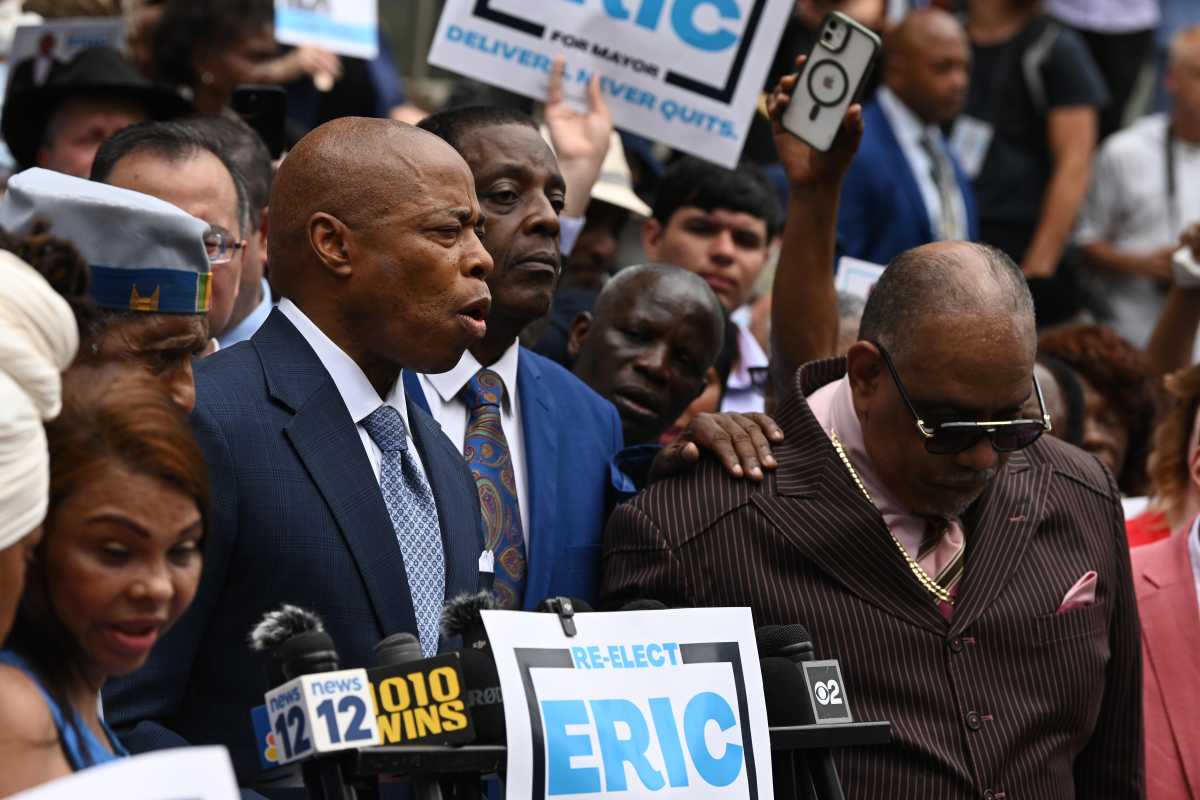Dr. Basil K. Bryan, a former New York consul general from Jamaica has retired from official diplomatic duties but he has not given up on diplomacy. Recently lauded and rewarded in his homeland, he was presented with the coveted Musgrave Award for literature by the Institute of Jamaica for penning a book about immigrants who migrated to Canada, the United Kingdom and the United States.
Published four years ago, the 577-page “The Jamaicans: Children of God in the Promised Land” documents and acknowledges “ordinary people” who left the island in search of an improved life.
“Often we talk about the bad things but rarely do we acknowledge the compelling stories of ordinary people who left Jamaica and what they accomplish and by their actions never forgot their homeland,” the Musgrave medal recipient told Caribbean Life.
He explained that throughout his years as a lecturer at Howard University in Washington D.C., and while serving as deputy ambassador from 1991-1998 and later consul general from 1998-2007, he was able to liase and meet nationals from all walks of life.
He said the one thing they had in common was a patriotic pride in their nationalism. He said from Bermuda to the many states he represented in his diplomatic position, he was often inspired by the diasporan sense of purpose to give back to the island / nation.
He compiled years of observation and during a book launch at the consulate here four years ago — after his retirement — he was welcomed by citizens, nationals and a grateful diasporan community intrigued by the personal testimonies and honest observations he noted.
“Bryan’s treatise offers a discerning insight of the diaspora and compelling personal stories of the journey travelled by Jamaicans in the United States,” P.J. Paterson, former prime minister from 1992-2006 said about the book. “The story he tells is vital to a fuller understanding of our history. It is informative, interesting and thought-provoking.”
Sir Howard Cooke, the governor general who served simultaneously also offered a rousing endorsement of the document.
“In the main the immigrants from Jamaica, while yearning to fulfill their hopes for a better life through gainful employment and the honing of their skills, seek to preserve and promote their cultural identity. They often maintain a nostalgic desire to eventually return home, but their decision will be based on the prospects for jobs, adequate remuneration, acceptable working conditions and a feeling of personal security.”
Bryan’s book was not unnoticed by decision-makers of the 128-year-old annual award.
Recently Olivia “Babsy” Grange, minister of culture hailed Musgrave medal winners during a ceremony in Kingston.
“I am honored to be recognized by my own people,” Dr. Bryan said. “I am very grateful that the work I did is appreciated.”
Presented in recognition of his achievements, a citation honoring “years of exemplary diplomatic service” as well as the coveted bronze Musgrave Medal marked gratitude and appreciation for Bryan’s service.
Originally conceived in 1889 and named in memory of Sir Anthony Musgrave, the founder of the Institute and the former Governor of Jamaica, the medal was the first to be awarded in the western hemisphere.
They recognize those who have excelled in three categories — literature, science and art.
Also honored were five distinguished nationals who reside in Canada and the USA.
Reggae crooner Frederick ‘Freddie’ McGregor received a silver medal for his achievements in art and music; Tanya Shirley received a silver medal for literature; Professor Herbert Ho Ping Kong attained a gold medal for science; while Professor Daniel Coore received silver in the same category. Eleanor Jones accepted a bronze medal for her contribution to science.


